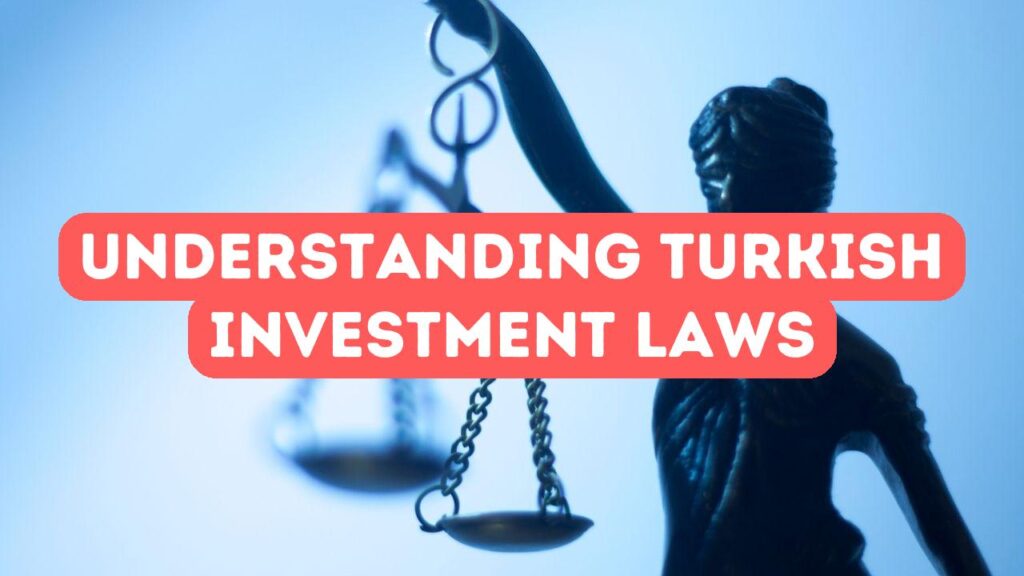Navigating the intricacies of Turkish investment laws is crucial for any foreign investor looking to capitalize on the myriad of opportunities within Turkey’s dynamic market. As a nation that stands at the crossroads of Europe and Asia, Turkey offers a unique blend of economic potential and strategic advantages that attract global investors. However, understanding the legal framework governing investments is pivotal for ensuring successful and compliant ventures. Gordion Partners specializes in guiding clients through these complex regulations, offering comprehensive advisory services in immigration, citizenship applications, real estate, and general guidance for foreigners in Turkey. In the following sections, we will delve deep into the critical aspects of Turkish investment laws to equip potential investors with the knowledge they need to make informed decisions.
Key Regulations for Foreign Investors in Turkey
The cornerstone of Turkey’s investment landscape for foreign investors is the Foreign Direct Investment Law (FDI Law) No. 4875, which fosters an open economy with minimal restrictions. This legislation ensures that foreign investors are subject to the same treatment as domestic investors, enabling a seamless and transparent investment process. Additionally, the FDI Law guarantees the protection of investors’ rights, including the freedom to transfer profits, dividends, and proceeds from sales. Notably, certain sectors may have specific requirements or limitations, making it essential for potential investors to thoroughly understand sector-specific regulations. At Gordion Partners, we navigate these nuances to provide tailored advice, ensuring compliance and optimizing investment outcomes.
In addition to the FDI Law, foreign investors must also consider Turkey’s comprehensive tax framework, which includes incentives designed to attract global capital. The Turkish government offers a range of tax benefits such as reduced corporate tax rates, VAT exemptions, and incentives for research and development activities. Moreover, Turkey has signed double taxation treaties with over 80 countries, which significantly reduces the tax burden on international investors and promotes economic cooperation. Understanding these tax regulations is critical for maximizing the financial advantages of investing in Turkey. At Gordion Partners, we help our clients navigate these complex tax structures, identifying opportunities to leverage incentives while ensuring full compliance with Turkish tax laws.
Another critical aspect of Turkish investment laws for foreign investors is the robust regulatory framework governing property acquisition and real estate investments. Turkey allows foreign nationals to purchase real estate, with specific exceptions for strategic and military zones. The property acquisition process has been simplified in recent years, and foreign investors can benefit from streamlined procedures and reduced bureaucracy. Furthermore, the Turkish government has introduced various initiatives, such as the Citizenship by Investment program, which offers citizenship to foreign investors meeting certain real estate investment thresholds. At Gordion Partners, we provide comprehensive real estate advisory services, guiding clients through every step of the property acquisition process and helping them capitalize on investment opportunities while ensuring compliance with legal requirements.
Navigating the Legal Landscape: A Guide for Potential Turkey Investors
When considering investment opportunities in Turkey, understanding the legal landscape becomes paramount. The Turkish government has established a robust legal framework to protect and regulate foreign investments, encapsulated in its Foreign Direct Investment Law (FDI Law) and related regulations. This law aims to create an environment conducive to attracting international capital by providing equitable treatment to foreign investors. Furthermore, it ensures that foreign investors can operate under the same conditions as domestic investors, promoting transparency and legal protection. This alignment with international standards not only safeguards investor interests but also fosters a stable and predictable business environment. At Gordion Partners, we guide potential investors through these statutory frameworks, ensuring compliance and optimizing investment outcomes.
Navigating the bureaucratic maze of Turkish investment laws also necessitates a thorough understanding of the types of incentives and support that the Turkish government offers to foreign investors. These incentives can include tax reductions, exemptions from customs duties, and even state-supported training programs to help businesses integrate seamlessly into the Turkish market. Moreover, certain regions and sectors are earmarked for specific benefits, such as technology development zones, free zones, and organized industrial zones, each offering their own unique set of advantages. By leveraging these incentives, investors can significantly reduce their operational costs and enhance their competitive edge. At Gordion Partners, we ensure our clients are fully aware of and able to capitalize on these opportunities, helping them navigate the available incentives and support mechanisms efficiently.
One of the crucial steps in successfully investing in Turkey involves thorough due diligence and legal compliance. Investors must be aware of the procedural requirements for establishing and operating a business, including but not limited to business registration, licensing, and adhering to labor regulations. Turkey has a well-structured regulatory environment that mandates clear documentation and adherence to local laws, which helps prevent legal pitfalls and operational setbacks. From securing necessary permits to ensuring environmental compliance, each step requires meticulous attention to detail. Gordion Partners excels in assisting clients navigate these procedural intricacies, providing expert guidance to ensure that every aspect of their investment is handled with precision and care. By partnering with us, investors can confidently embark on their ventures, knowing that they are fully compliant with Turkish laws and positioned for long-term success.
Essential Legal Considerations for Investing in Turkish Real Estate
When investing in Turkish real estate, understanding the essential legal considerations is paramount to safeguarding your investment. The first step is recognizing that foreign nationals are permitted to buy property in Turkey, albeit with certain restrictions in military zones and rural areas. Ensuring the property has a clean title deed, free of any encumbrances, mortgages, or disputes is crucial. Additionally, foreign investors must be aware of the legal requirement to obtain a potential tax number from Turkish tax offices to facilitate financial transactions. Navigating these legal intricacies with professional guidance can prevent costly errors and ensure a smooth investment journey. Gordion Partners offers the expertise and local knowledge necessary to help you successfully navigate these legal landscapes, providing peace of mind and a solid foundation for your real estate ventures in Turkey.
Another key legal consideration for foreign investors in Turkish real estate is the mandatory official valuation report, required by the government to determine the true market value of the property. This step is crucial for ensuring transparency and fairness in real estate transactions. Additionally, foreign investors should be mindful of the legal procedures related to property acquisition, including the initial signing of a sales agreement and the subsequent registration of the property with the Land Registry Office. It is also important to be aware of the specific taxes applicable to real estate transactions, such as the title deed fee, VAT (if applicable), and possible capital gains tax upon resale. Engaging with experienced legal advisors and property experts like Gordion Partners can help foreign investors navigate these requirements seamlessly, ensuring compliance and protecting their investments.
Furthermore, it is essential to be cognizant of the ongoing responsibilities and obligations that come with owning property in Turkey. Property maintenance, adhering to local zoning laws, and complying with Turkish regulations regarding rental income and property management are significant aspects that investors must consider. Knowledge of rental income tax obligations and the need to file tax returns annually is crucial for those who plan to generate rental income from their property. Additionally, understanding the protocols for transferring property ownership, whether through sale or inheritance, is vital for long-term planning. Gordion Partners’ team of experts provides continuous support and detailed guidance on these matters, helping investors maintain compliance with Turkish laws and regulations, while maximizing the potential of their real estate investments.






